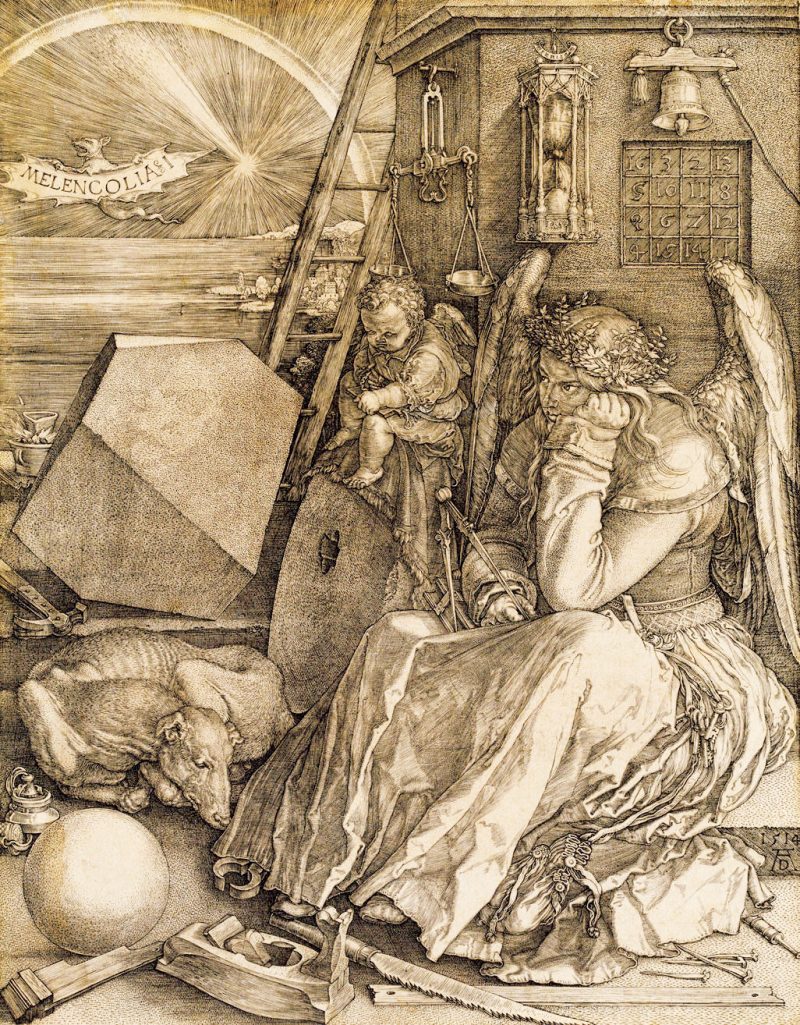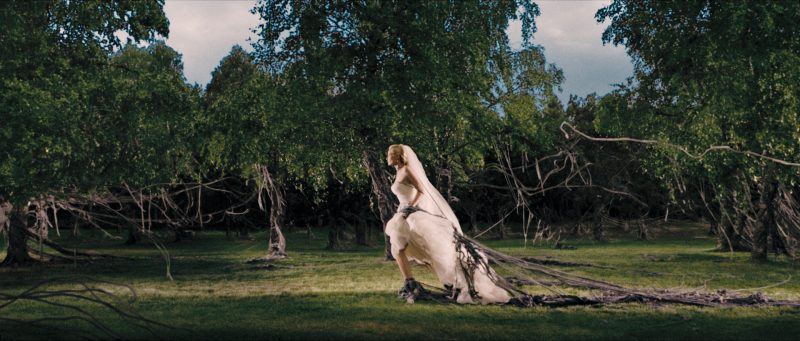I. Leo’s Loop
At 5:30 p.m. on May 20, 2012, to the aggravation of motorists trying to get to the Trader Joe’s three blocks away, the people on our block gathered in the street to watch an annular solar eclipse, a.k.a. the “Ring of Fire.” Peering through a specially fitted telescope, I watched the sun slowly disappear behind the moon until it was nothing but a tiny rim of light edging a large, mysterious black globe. The air darkened around us. Neighbors exchanged uneasy glances. I felt the hairs on the back of my neck bristle. For a split second in that uncanny twilight, before the shadows on the pavement quit trembling and the sky brightened again, we seemed completely at the mercy of massive heavenly bodies hurtling through the sky.
It was a Melancholia moment.

As if in anticipation, the year leading up to this major astronomical event gave us not one but two films in which a large planet intrudes into Earth’s atmosphere with cataclysmic consequences for a handful of human characters. Melancholia, released in the U.S. in November 2011, appeared hard on the heels of a movie with the same unlikely theme—the connection between a bereft young woman and a strange new planet that suddenly appears in the sky. This was Another Earth, directed by Mike Cahill and written by Cahill and Brit Marling, who also plays the starring role of Rhoda, a young woman who kills an astrophysicist’s wife and child in a drunken car accident. After her release from jail, Rhoda gets herself hired as a housecleaner by the grieving widower, who is unaware of her identity until she finally confesses. Resolution occurs in this understated and underrated little film when Rhoda gives the astrophysicist the ticket she has won to travel to the alternate reality of the second Earth, where he’s presumably reunited with his loved ones. In a last-frame reversal, Rhoda’s double shows up at her front door, leaving us to wonder what calamity back on her own Earth this pulled-together, professional-looking woman might be fleeing from.
The invading planet of Danish writer-director Lars von Trier’s Melancholia, in contrast, delivers not the hope of an alternate life, but total destruction. What are we to make of this oddly jaunty tale of dark moods (in contrast to, say, Bergman’s on-the-nose depressive treatment of depression in Hour of the Wolf) and an even darker resolution (the literal end of the world) that combines psychological melodrama, sci fi–fantasy, and apocalypticism? At once ragged and...
You have reached your article limit
Sign up for a digital subscription and continue reading all new issues, plus our entire archives, for just $1.50/month.
Already a subscriber? Sign in





